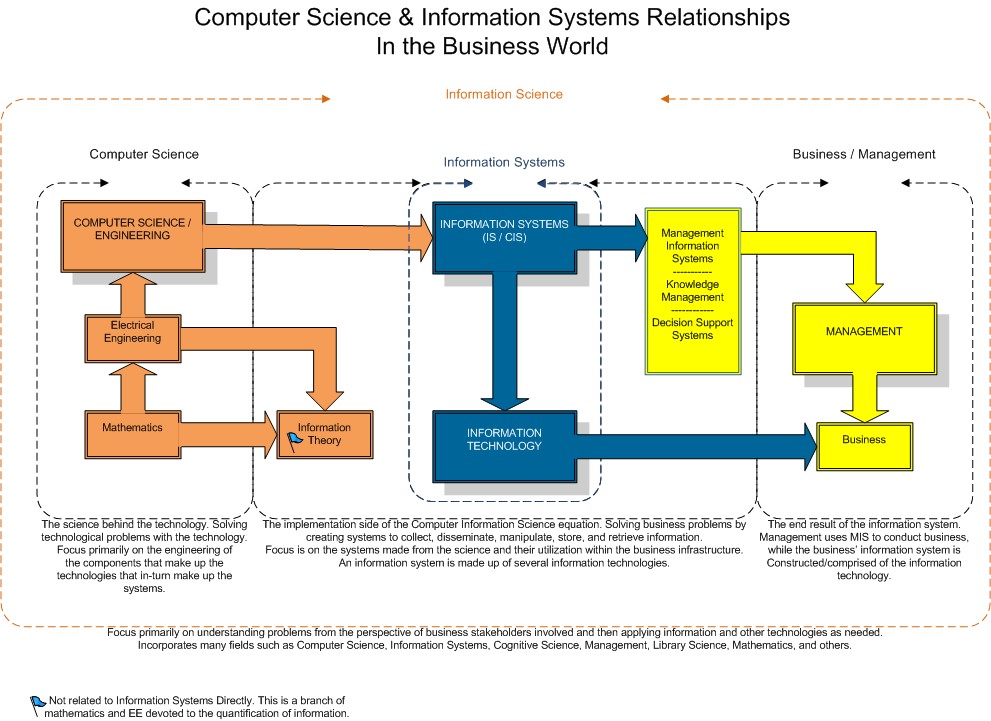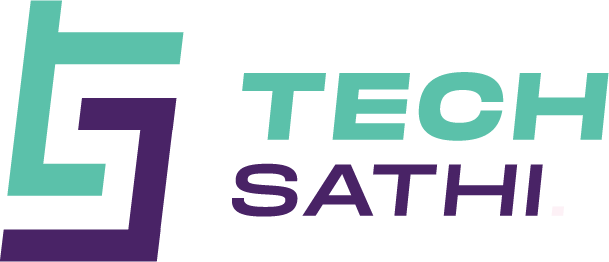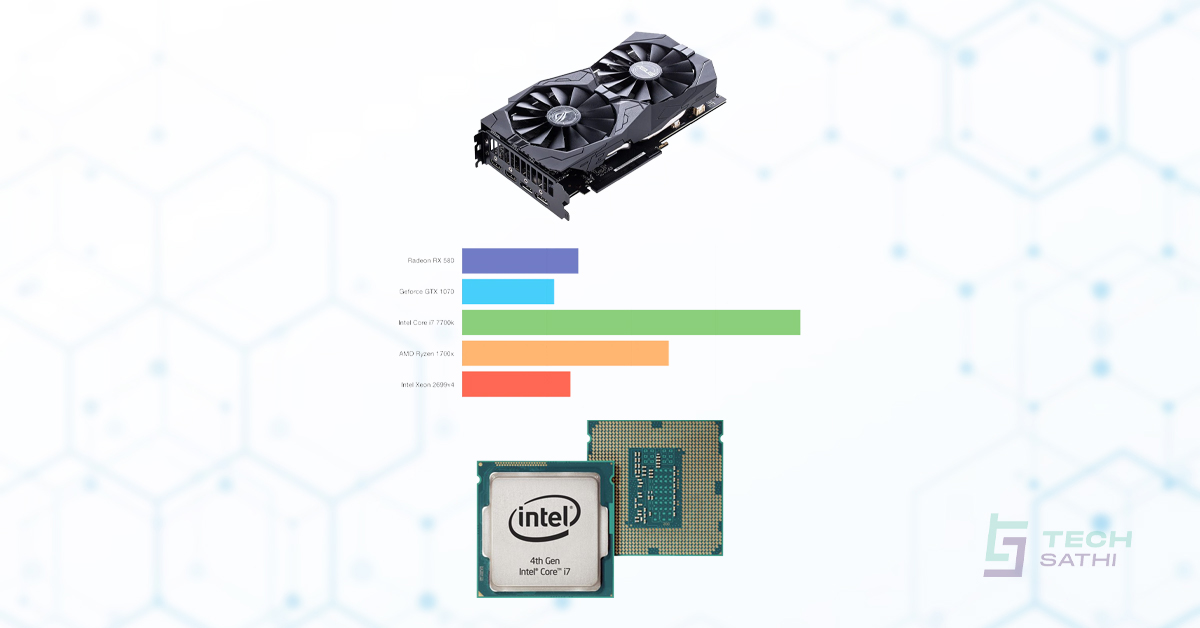One of the most frequently asked questions in public forums in Nepal these days is “What are the best IT courses/colleges in Nepal?”, “Which is the best IT course in Nepal” or some version of it. Well, to save you the trouble of reading the whole article, I’ll answer this in two words “It depends”.
I think a lot of aspiring IT students don’t know the difference between ICT, computer science, software engineering and business computing and information systems degree. On a superficial level, they all might look similar but they all have some differences.
Information Technology, Information Systems, and Computer Science are not the same thing

Information Technology
Information Technology deals with the installation and maintenance of computer networks and systems. It deals with knowledgebase related to database and network infrastructure.
Information and Communication Technology (ICT)
ICT extends IT to include telecommunication technology such as telephone lines, wireless telecommunication, etc. In a way, IT is a subset of ICT and ICT is a superset of IT.
Computer science
Computer science deals with the study of computation and algorithms and mathematics behind those algorithms. The field has both theoretical and practical aspects to it but it does deal with computational theory in depth which other courses or degrees might overlook. If you want to become a computer scientist who comes up with a revolutionary mathematical algorithmic model to do computation then this field might be for you, a budding future scientist.
Computer engineering
Computer engineering is a sub-branch of electronic engineering which itself is a sub-branch of electrical engineering. It integrates concepts related to electronic engineering and computer science required for the development of both hardware and software.
You’ll study a lot of subjects common to other engineering disciplines in this course in early semesters. If the hardware and engineering aspect of computing doesn’t intrigue then maybe this course is not for you.
Information Systems
This Information Systems degree is about teaching students how to apply technology in business. Information Systems takes technology and situates it in a commercial setting.
Information systems discipline brings computer science and the business facets together through the study of both theoretical computational and informational systems and their application in a commercial setting.
If you choose this degree, expect to study some computer science subjects, some information technology subjects along with business subjects such as economics, finance, financial technology, marketing, psychology, etc.
Some other technology-related degrees in Nepal
CSIT
CIST degree combines previous 3-year Computer Science degree and 3-year Information Technology degree into a single 4-year course. So, the degree can be thought of as a combination of Information Technology and computer science principles and applications.
Bachelor of Computer Application (BCA)
BCA claims to be a more practical-oriented course. Hence, the course focuses on the application side of technology i.e using computer science and information technology principles to develop computer applications. This course also seems to include some business-related courses.
Bachelor of Information Management(BIM)
Information management is concerned with infrastructure, people, and contexts required for the collection, management, and dissemination of information. Upon further inspection, a BIM degree coursework appears to be somewhat similar to that of an Information Systems degree i.e both heavily focus on business-related coursework along with technological aspects in regards to CS and IT.
Which one to choose?
There’s a lot of courses focusing on technology. It ranges from CSIT, CSE, BIT, BIM, BCIS, BBIT, BCA, BSc Hons degrees, etc. You can find the criteria and eligibility requirements for each course online.
The no-brainer and first and foremost thing to do is to check if you’re eligible for a certain course. You can’t get an engineering degree without a +2 science degree but you can get a BIM, BCIS types degree with +2 management as well.
Let’s suppose you’re eligible for all these courses? Which one to choose then?
Well, it depends on what you’re looking for. There is no best course but there is the best course for you. If you are someone who wants to learn both hardware and software aspects of technology then go for engineering. If you wish to learn hardcore CS and IT courses then go for CSIT. If you are looking to lean more towards the application side of technology, maybe BCA is for you. If you want to understand how businesses work and how technology can be implemented in a business context then go for BIM or BCIS.
Another thing you can do is check the syllabus for each course you’re interested in, look up the subjects listed in the syllabus and see what intrigues you.
Which is the best college?
None of them.
Maybe choose a popular well-renowned college so the market knows where exactly you studied but, to be honest, it doesn’t matter. Unless you study at MIT, Standford, Harvard, IIT, NIT, Yale, and whatnot, it doesn’t matter.
It’s skills that are actually relevant in this field. There are people without a college degree who are IT-professionals. There are programmers without degrees and there are designers, networking folks without degrees. Some people just learn programming and start working. Some people get CCNA certification and start working.
What degree you choose and what college you choose doesn’t matter if you don’t have the relevant skills required by the industry. Check this article by TechCrunch. Not all computing-related jobs require a degree. Obviously, it might make it easier to enter the market early on but that too can be debated, to be honest. There are music majors who are programmers. It’s been said that musicians make good programmers for some reason.
Conclusion
Technology is an ever-evolving field, a lot of knowledge relating to it becomes outdated fairly quickly. This field requires more self-learning and networking than a shiny degree.
What course to choose entirely depends on your interest and if a particular course matches what you’re looking for. What college you choose depends on various factors regarding affordability, infrastructure, popularity, and culture of the chosen campus. If you don’t want to wear a uniform then maybe don’t choose a college that requires a uniform?
You can check edusanjal.com to check various programs/courses being offered at Nepal and colleges that are offering them. This article also lists some popular IT colleges in Nepal.






